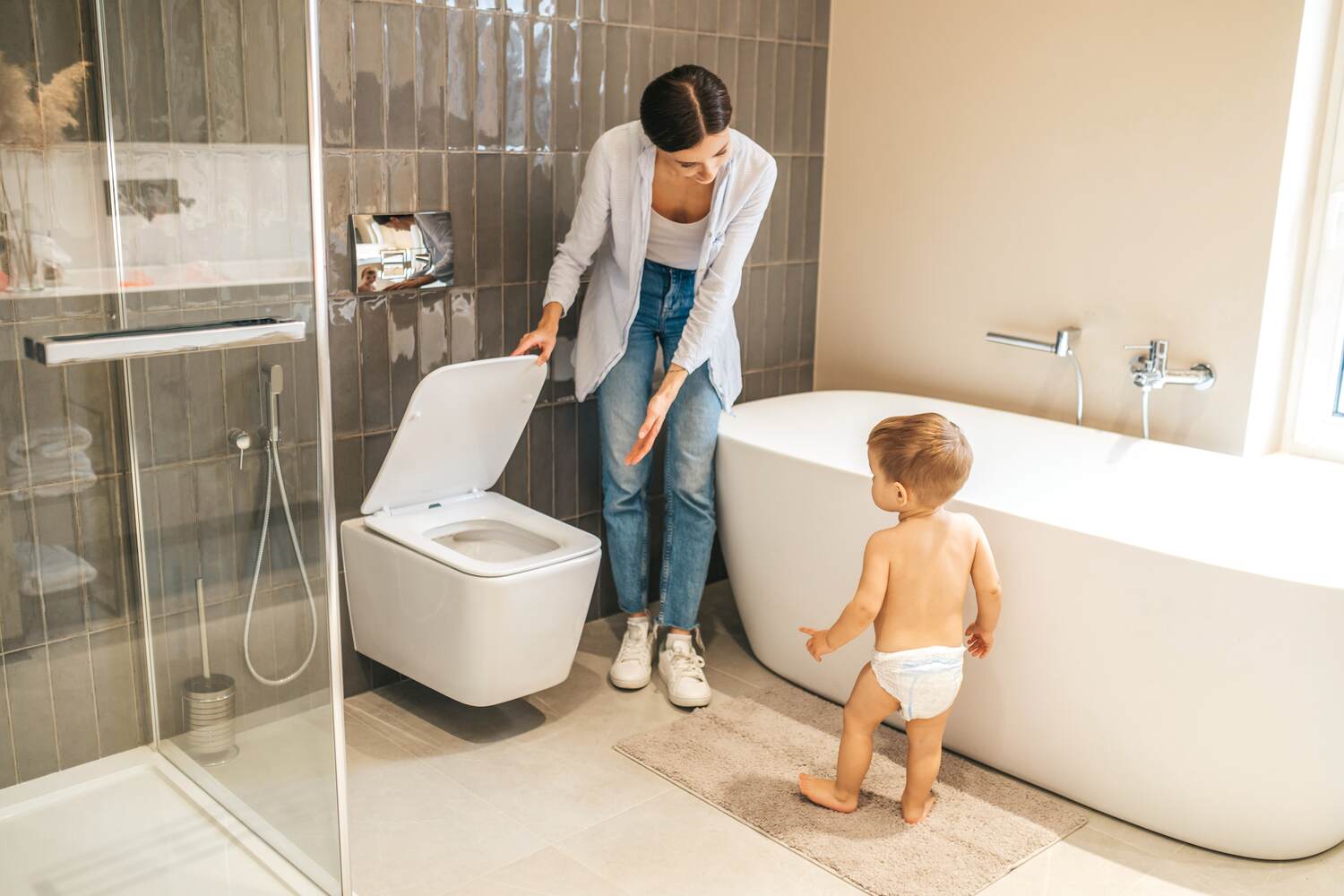
The process of toilet training the kids with autism can be both challenging and emotionally draining. The parent may need tons of patience and understanding to make it happen. However, the good part is that most autistic kids can get toilet trained with consistent routines and verbal praise from the caregiver.
For an autistic child, the toilet training process involves creating easy plans for them. Being calm with them helps a lot. Through a personalized approach, the parent can empower the child to grasp this developmental milestone successfully, even if it takes time. Toilet training kids with autism may take time because you need to cater to their unique needs and learning ability. Read this article to know all about how to effectively impart toilet training to children with autism.
In This Article
- Reasons For Delay in Toilet Training an Autistic Child
- When to Toilet Train an Autistic Child?
- How to Prepare Autistic Children For Toilet Training?
- How to Toilet Train Autistic Kids?
- Top 5 Tips to Help You Toilet Train Children with Autism
- FAQ’s
Reasons For Delay in Toilet Training an Autistic Child
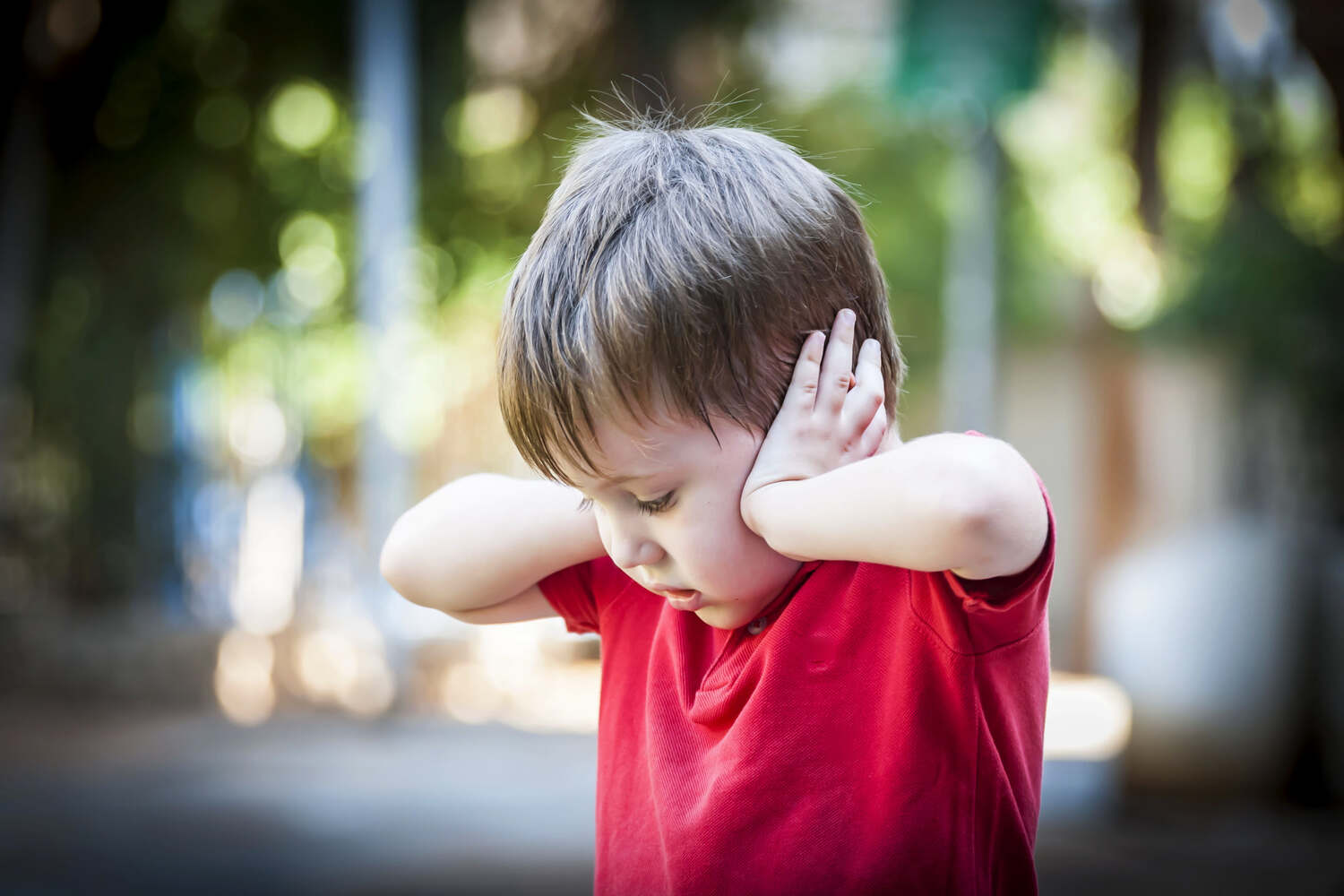
Teaching the basic skills of using a toilet successfully can be a challenge with an autistic child (1). It is because each of them has varying needs. Moreover, their ability to understand verbal or nonverbal communication is lower than other kids of the same age. With an autistic kid, toilet training has to be specialized, depending on their individual needs.
Most autistic children get delayed in toilet training because of the following reasons –
- Sensory sensitivity to the noise of the flush or not liking the look of the toilet can delay usage
- They have limited speech and may not talk about their needs
- Cannot understand social expectations about staying dry or not soiling clothes in front of others
- Autistic kids cannot handle change. They may not find it easy to give up diapers and use the toilet seat
- Developmental delay is another reason (2). These kids learn skills later than their same-age peers
- Some children with autism struggle with dressing. So, they cannot pull their pants up or push them down when needed
When to Toilet Train an Autistic Child?
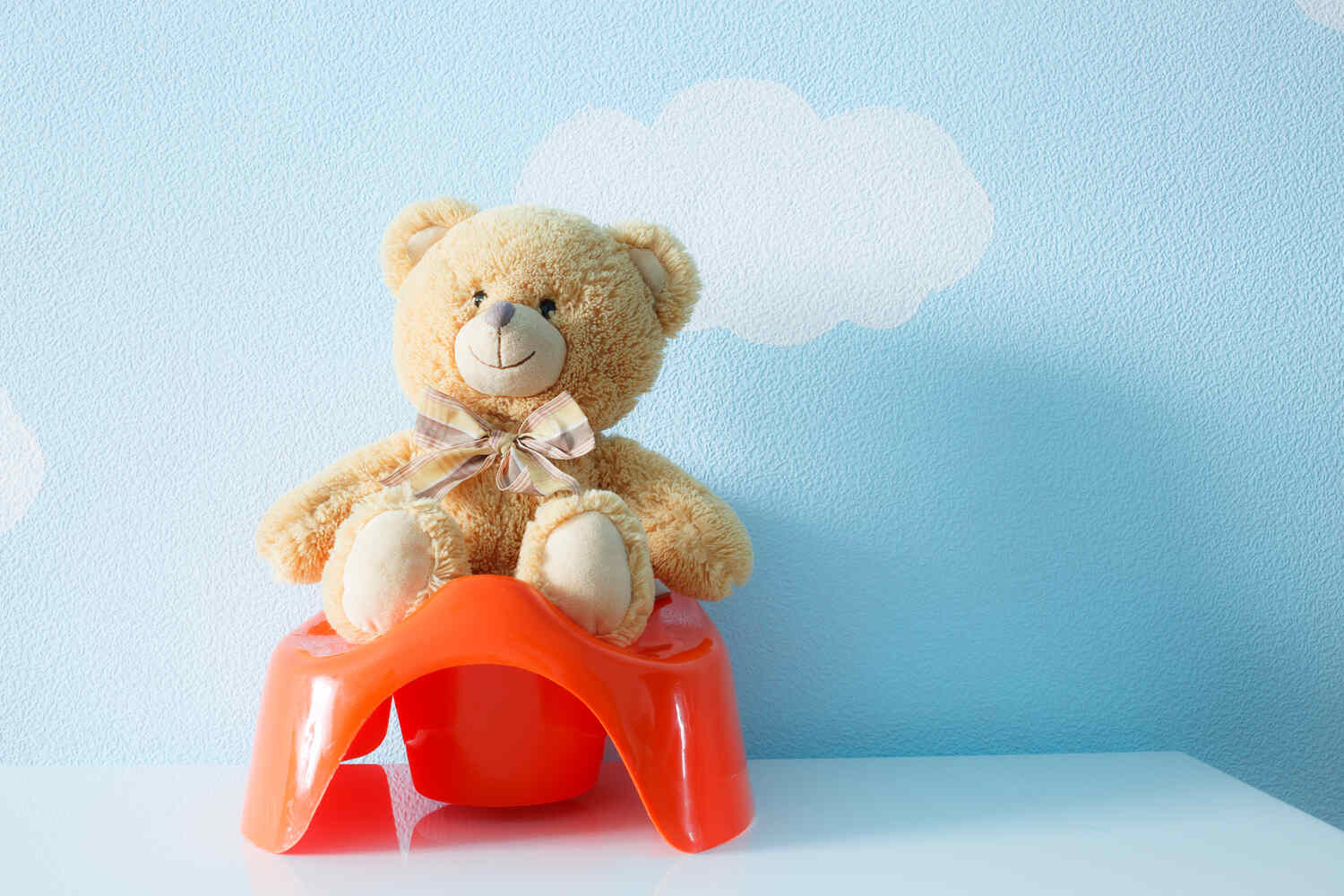
As a parent, the first thing that you should consider is whether your child is ready for the process. Although autistic children and non autistic kids show similar signs of readiness, autistic children may take longer to use the toilet. They may resist until they are a little grown up (3).
As a parent or caregiver, you can look for readiness signs in your child. If your autistic child is ready for toilet training, they might show signs such as-
- Your child showing a sign or body gesture that they have soiled clothes or a diaper is completely wet
- Your child follows simple direct instructions given by you like ‘Sit on the potty seat’
- Pulling pants up and down shows that they need to use the washroom
- Your kid is staying dry for 2-3 hours in the day
- The child shows privacy while bowel training
How to Prepare Autistic Children For Toilet Training?
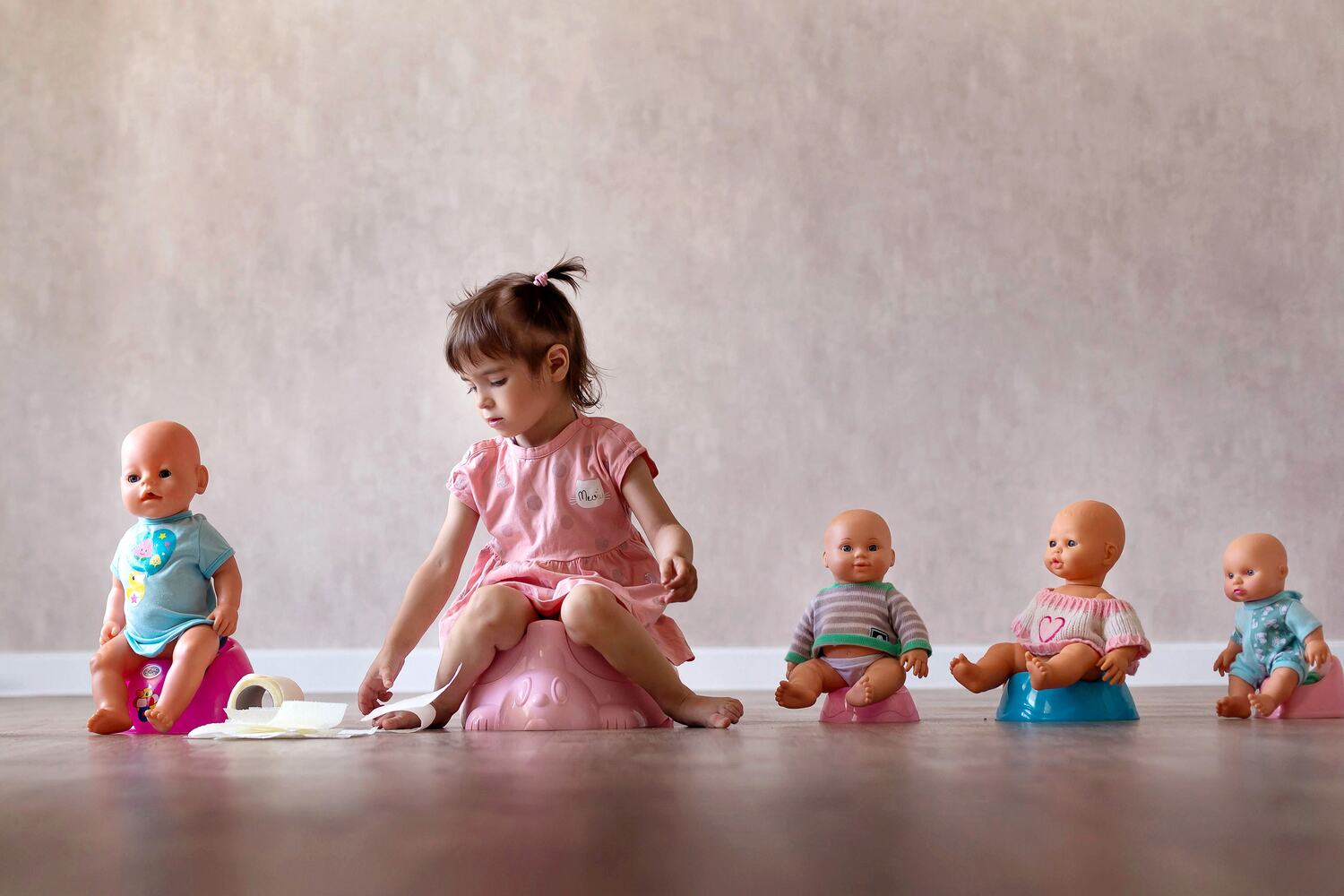
Sometimes, preparing the autistic child to use the washroom depends on their learning ability. Research findings have shown that autistic children cannot engage in self-care due to developmental delay (4). Consequently, toilet training is a hurdle for them.
Being a parent of an autistic child, you can use some simple ways to prepare for your child‘s potty training. Remember to make your washroom child-friendly. Keep noisy fans away. Moreover, cold floors and loud sound of the flush should be avoided. They are sensitive to sensory stimuli that are harsh.
- Use a visual routine by showing pictures of how to use the washroom
- All the family members should support each other while doing the potty training process with the child
- Get the child to visit the washroom so that they know what it is used for
- You can arrange small potty seats, foot stools so that the child finds it comfortable
- Follow a routine and make sure that you follow it for the child consistently. They should sit in the potty seat every day at the same time, so that they get used to it slowly
How to Toilet Train Autistic Kids?
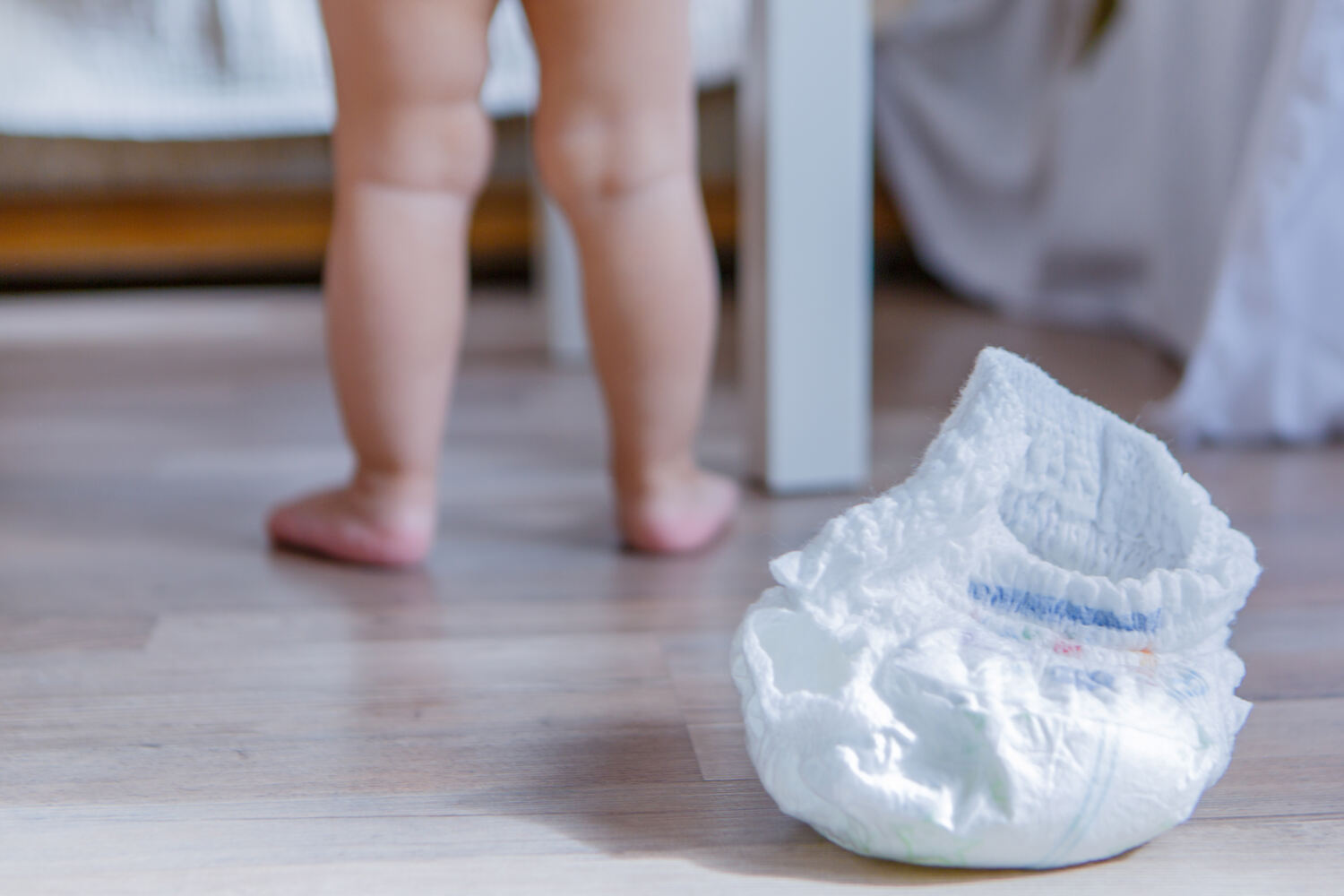
There are some simple ways of toilet training kids with autism. Some of them are as follows-
- Use encouragement and avoid scolding the kid
- If accidents occur in the form of soiling clothes, you need to reassure the child
- You should use hugs and smiles when they achieve success
- Praise them even when they are not doing right
- You can set timers for potty breaks and assist them inside the washroom
- You can also teach them the ways of removing their clothes while sitting on the potty seat
- Diapers can be replaced with tight-fit pant
Top 5 Tips to Help You Toilet Train Kids With Autism
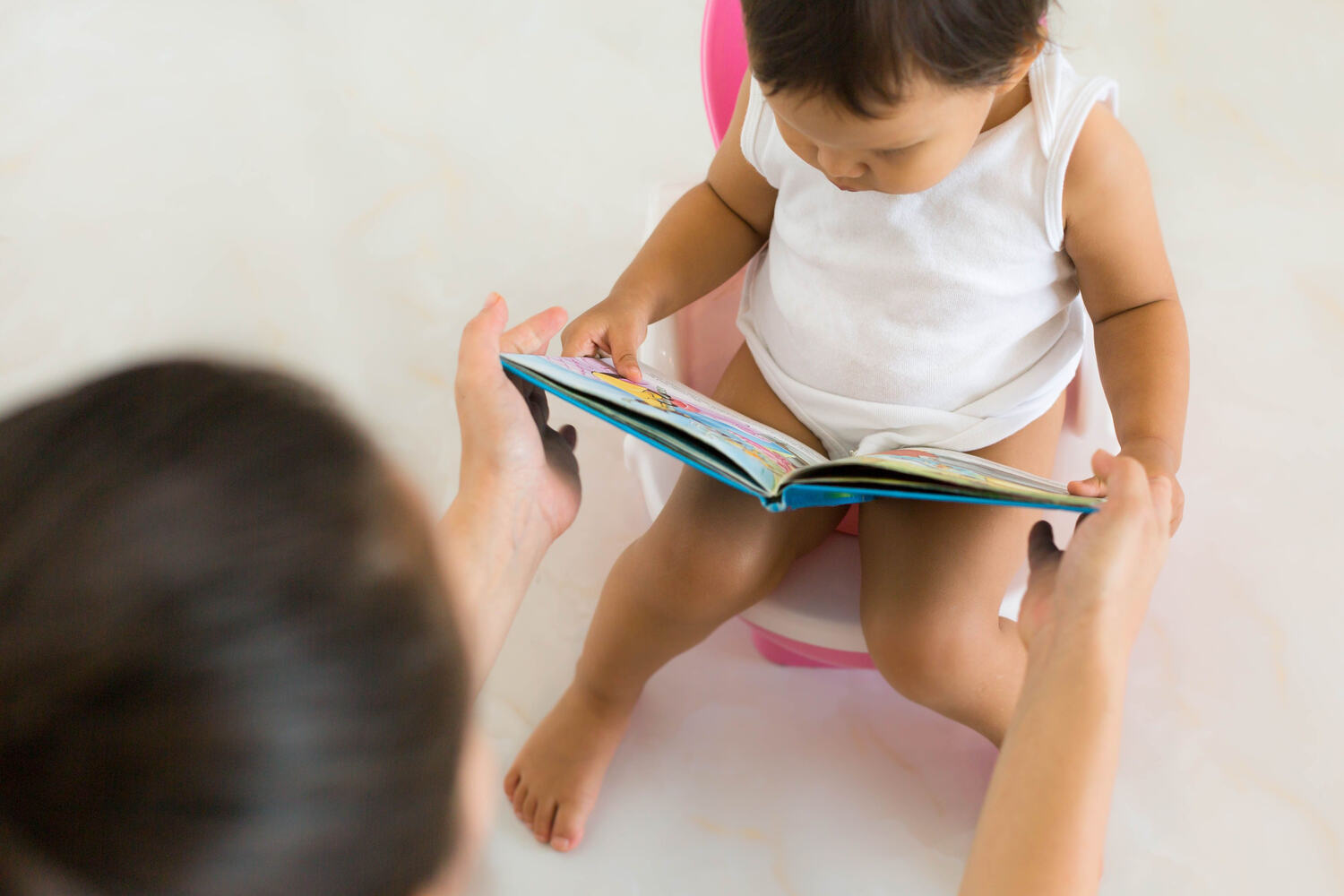
Toilet training an autistic child is difficult and requires a lot of patience and consistent efforts by the parents. These top 5 tips will help you toilet train children with autism with ease-
1. Create a Structured Routine
At home, maintain a fixed time for bathroom breaks. You can use timers to remind the child, or you can show visual cues or video modeling to tell them that it’s time for bathroom breaks (5).
2. Using Social Stories
You can tell stories about toilet training. This can be done by explaining to the child the step by step process of using the washroom.
3. Compliment The Child For Success
Always celebrate their tiny efforts. Never be rude with them even when they fail to do the expected. You should reward them with cookies, or a toy if possible, just to encourage their efforts. These act as reinforcements and motivate the child to try again (6).
4. Have Flexibility And Never Force The Child
Be slow and steady with autistic kids. You need to understand their capabilities also. Therefore, be flexible and avoid forcing them when they’re cranky or showing emotional distress of some kind. You can try again sometime later.
5. Train Peeing And Pooping Separately
Teach one thing at a time. Remember that they may not learn two things together. Help them learn the self-care skill of using the washroom at their own pace. This often ensures better success.
Each autistic child is unique. Therefore, the process of toilet training the kids with autism has to be individualized. A supportive and encouraging home environment with consistent routine can help the autistic child accomplish the self-care process of using the washroom on their own in a better way.
FAQ’s
1. How Long Does Potty Training Take For Children With Autism?
Some autistic children may take more than a year to learn to stay dry in the daytime. However, bowel control can even take longer up to 2 years also.
2. Do Autistic Kids Pee a Lot?
Generally, autistic children pee a lot because they lack the sensory awareness to use the washroom at the right time. They may not register that their bladder is full.
References
- Steps to Becoming Independent: Toilet Training Challenges Facing Children with Autism Spectrum Disorder – [https://files.eric.ed.gov/fulltext/EJ1129712.pdf]
- Symptoms of autism spectrum disorder and developmental delay in children with low mental age –[https://www.ncbi.nlm.nih.gov/pmc/articles/PMC9210070/]
- Toileting Resistance Among Preschool Age Children With and Without Autism Spectrum Disorder – [https://www.ncbi.nlm.nih.gov/pmc/articles/PMC9050947/]
- Toilet Training Children With Autism and Developmental Delays: An Effective Program for School Settings – [https://www.ncbi.nlm.nih.gov/pmc/articles/PMC3592490/]
- Toilet Training for Children with Autism: The Effects of Video Modeling – [https://www.researchgate.net/publication/225523756_Toilet_Training_for_Children_with_Autism_The_Effects_of_Video_Modeling]
- Investigation of a reinforcement-based toilet training procedure for children with autism – [https://pubmed.ncbi.nlm.nih.gov/12401483/]
